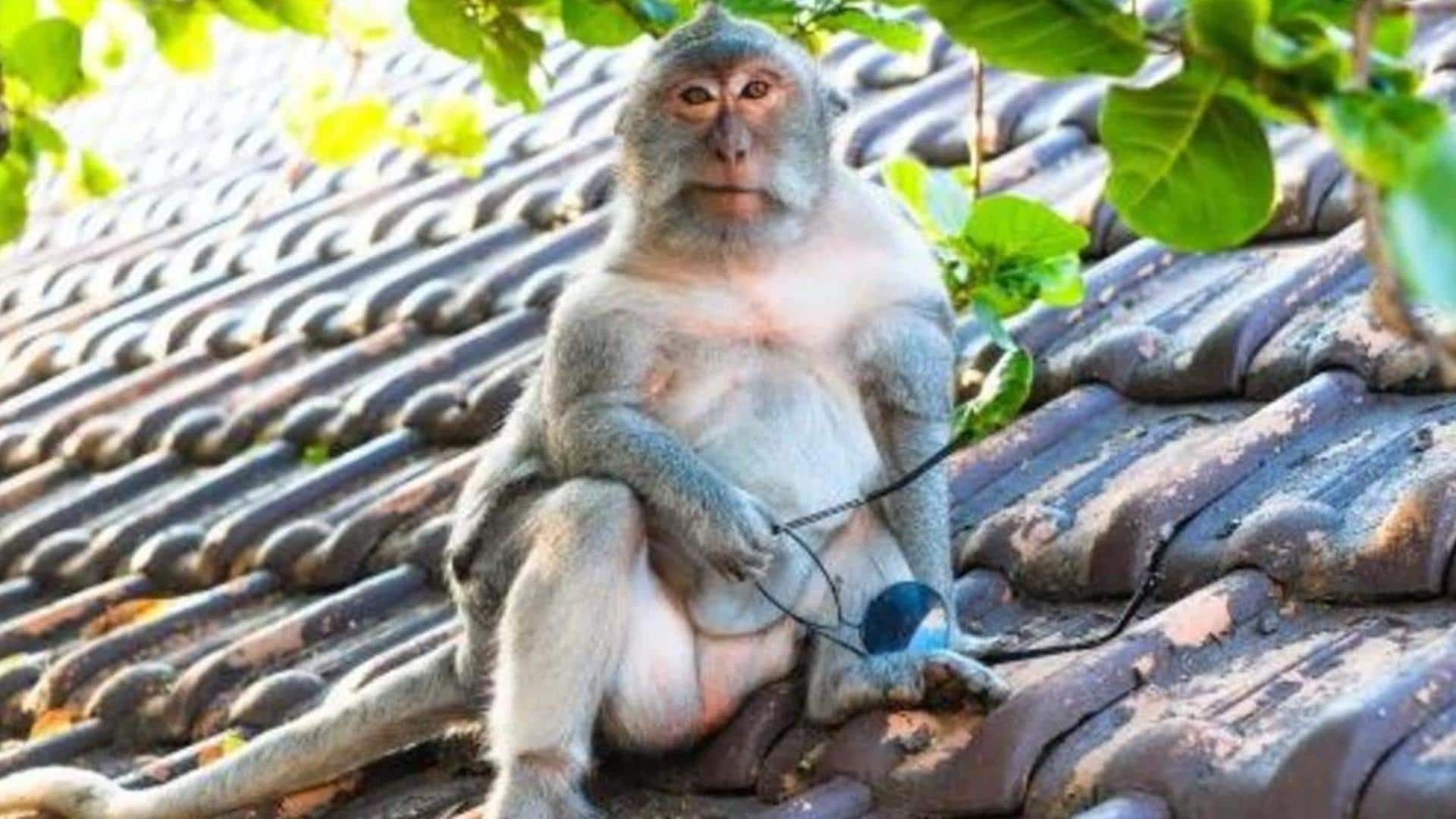
China wants to send monkeys into space to study reproduction
What's the story
Chinese scientists want to send monkeys to the Tiangong space station in order to study reproduction. The project is headed by the Chinese Academy of Sciences. The experiment will be conducted in the Wentian module, which has been used to carry out life science experiments. Previously, Russia performed a similar experiment on mice during their 18-day space flight. However, it wasn't successful.
Context
Why does this story matter?
The Wentian is a 59-feet long spacecraft that is designed to conduct scientific experiments in space. The possible reason behind selecting monkeys as the test animals in this biological experiment might be because they have several similarities to humans, especially on a molecular level. Astronauts onboard will have the added responsibility of taking care of the monkeys.
Details
Where will this study take place?
Until now, the two test cabinets for biological experiments on the Wentian module have only accommodated smaller test species such as fish, snails, or algae. Fortunately, the cabinets are expandable. Studies will also be performed on mice and macaques. "These experiments will help improve our understanding of an organism's adaptation to microgravity and other space environments," said lead researcher Zhang Lu.
Motive
Larger the test animal, greater the challenge
According to Kehkooi Kee, a researcher who lead an in-orbit stem cell experiment, the challenges associated with conducting a life sciences experiment in space increase exponentially with the size of the animals used. He claims that such biological experiments are necessary, especially since there has been an interest in understanding the habitability on other celestial places such as the Moon and Mars.
Previous studies
Studies suggest cosmic radiation might not have adverse effects
Researchers have been particularly interested in the effects of cosmic radiation on reproductive cells. Certain ground-based experiments on test animals revealed that the absence of gravity could damage reproductive organs. However, long-term data recorded on International Space Station yielded a positive result. The levels of the male hormone, testosterone, were found to remain normal for most of the time when astronauts were in space.
Challenges
Test monkeys are generally raised in confined environments
It is possible that the behavior of test monkeys, usually raised in cages, might be unfavorable. "On the ground, it is possible to calm a monkey in panic with toys, music, or simply letting them mingle with other monkeys," said a life scientist. "How to take care of the monkeys and keep them happy and comfortable will be a new challenge to the astronauts."